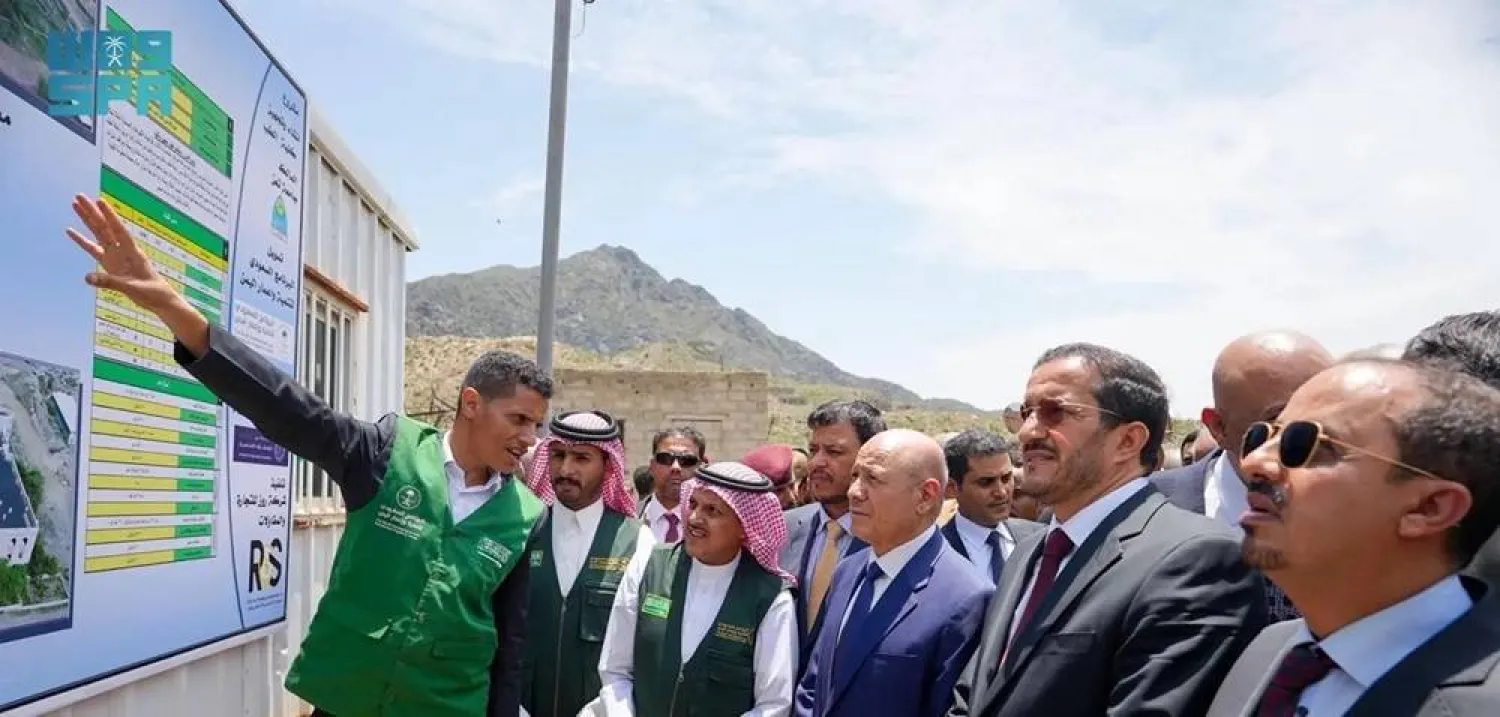Under the patronage of Chairman of Yemen's Presidential Leadership Council Dr. Rashad Al-Alimi, the Saudi Program for the Development and Reconstruction of Yemen (SDRPY) launched a series of vital development projects in the Taiz Governorate.
They include constructing and equipping a specialized cancer center, power generation plant, technical industrial institute, rural hospital, and exemplary Al-Wahda Joint School, reported the Saudi Press Agency on Tuesday.
These crucial development projects are part of Saudi Arabia's decades-long commitment to providing development and humanitarian aid to Yemen. The Kingdom's support for Yemeni development began in the 1970s, culminating in establishing the SDRPY in 2018, which continues the historic trajectory of Saudi development assistance to Yemen.
Ambassador Mohammed bin Saeed Al Jaber, Supervisor General of the SDRPY said this package of vital development projects in Taiz is being launched under the directives of Custodian of the Two Holy Mosques King Salman bin Abdulaziz and Prince Mohammed bin Salman, Crown Prince and Prime Minister, and under the patronage of Al-Alimi.
The projects will join the program's existing projects and initiatives in Taiz and other Yemeni governorates.
This support embodies the deep relations between the two brotherly countries and aims to achieve lasting stability and sustainable and comprehensive development in Yemen, added Al-Jaber. It represents a rapid and direct investment in various development fields, focusing on bolstering infrastructure, and improving service efficiency and the daily lives of the Yemeni people.
Al-Jaber further indicated that this support reflects the deep-rooted ties between the two brotherly nations and aims to achieve lasting stability and sustainable and comprehensive development in Yemen.
Saudi Arabia is one of the most prominent supporters of Yemen, with total historical aid exceeding $26 billion. The Kingdom's direct economic and development support from 2012 to 2023 reached approximately $11.9 billion, including deposits to the Central Bank, grants for oil derivatives, and the most recent $1.2 billion support for the Yemeni government's budget.
The SDRPY has provided development projects and initiatives to Taiz, including the rehabilitation of the Hayjah al-Abd road, the construction and equipping of the Faculty of Medicine, the Faculty of Pharmacy, and the Faculty of Nursing and the construction and equipping of the exemplary Kashar School.
It has also implemented a program to boost essential services in the health, education, and energy sectors in several districts using solar energy technologies, a project to improve water transportation efficiency by providing water tankers, and a project to support emergency and critical medical cases by providing fully equipped ambulances.
The SDRPY contributes to improving infrastructure and basic services and creating job opportunities by coordinating with the Yemeni government, local authorities, and civil society organizations.
The SDRPY has provided development projects and initiatives in eight primary and vital sectors: education, health, water, energy, transportation, agriculture and fisheries, development and support of Yemeni government capabilities, and development programs across various Yemeni governorates.









